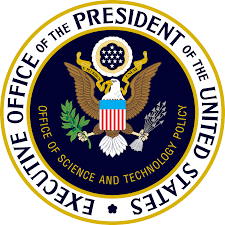coronavirus pandemic
See the following -
Coronavirus Lessons From the Asteroid That Didn't Hit Earth
 London: The coronavirus pandemic has dramatically demonstrated the limits of scientific modeling to predict the future. The most consequential coronavirus model, produced by a team at Imperial College London, tipped the British government, which had until then pursued a cautious strategy, into precipitate action, culminating in the lockdown under which we are all currently laboring. With the Imperial team talking in terms of 250,000 to 510,000 deaths in the U.K. and social media aflame with demands for something to be done, Prime Minister Boris Johnson had no other option. But last week, a team from Oxford University put forward an alternative model of how the pandemic might play out, suggesting a much less frightening future and a speedy end to the current nightmare.
London: The coronavirus pandemic has dramatically demonstrated the limits of scientific modeling to predict the future. The most consequential coronavirus model, produced by a team at Imperial College London, tipped the British government, which had until then pursued a cautious strategy, into precipitate action, culminating in the lockdown under which we are all currently laboring. With the Imperial team talking in terms of 250,000 to 510,000 deaths in the U.K. and social media aflame with demands for something to be done, Prime Minister Boris Johnson had no other option. But last week, a team from Oxford University put forward an alternative model of how the pandemic might play out, suggesting a much less frightening future and a speedy end to the current nightmare.
- Login to post comments
Hiding Our Heads in the Sand - Why the US is Unprepared for Pandemics and Disasters
 A new report from the Trust for America's Health minces no words. President and CEO John Auerbach charges: COVID-19 has shined a harsh spotlight on the country's lack of preparedness for dealing with threats to Americans' well-being. Years of cutting funding for public health and emergency preparedness programs has left the nation with a smaller-than-necessary public health workforce, limited testing capacity, an insufficient national stockpile, and archaic disease tracking systems - in summary, twentieth-century tools for dealing with twenty-first-century challenges.
A new report from the Trust for America's Health minces no words. President and CEO John Auerbach charges: COVID-19 has shined a harsh spotlight on the country's lack of preparedness for dealing with threats to Americans' well-being. Years of cutting funding for public health and emergency preparedness programs has left the nation with a smaller-than-necessary public health workforce, limited testing capacity, an insufficient national stockpile, and archaic disease tracking systems - in summary, twentieth-century tools for dealing with twenty-first-century challenges.
- Login to post comments
How Laboratories and their Systems can Weather Natural Disasters and Pandemics
 We are currently experiencing a global pandemic - which, while perhaps included in disaster preparedness Standard Operating Procedures (SOPs) by many labs as a possible disaster, still has caught most the infrastructure and health systems of most nations largely unprepared, and is causing major disruption because it was arguably not seen as one of the most likely events. Disaster preparedness has typically tended to focus on IT and data management risks and/or natural disasters. SOPs center around standard, daily lab safety. The truth is that whatever the odds of a particular disaster, they become 100% once they happen. It's important to have sufficient risk-reduction SOPs in play, and a good Continuity Of Operations Plan (COOP) for each potential scenario to ensure the best chance of coping during the event and recovering afterwards.
We are currently experiencing a global pandemic - which, while perhaps included in disaster preparedness Standard Operating Procedures (SOPs) by many labs as a possible disaster, still has caught most the infrastructure and health systems of most nations largely unprepared, and is causing major disruption because it was arguably not seen as one of the most likely events. Disaster preparedness has typically tended to focus on IT and data management risks and/or natural disasters. SOPs center around standard, daily lab safety. The truth is that whatever the odds of a particular disaster, they become 100% once they happen. It's important to have sufficient risk-reduction SOPs in play, and a good Continuity Of Operations Plan (COOP) for each potential scenario to ensure the best chance of coping during the event and recovering afterwards.
- Login to post comments
Marc Andreessen: It is Time for America to Build
 ...I think building is how we reboot the American dream. The things we build in huge quantities, like computers and TVs, drop rapidly in price. The things we don't, like housing, schools, and hospitals, skyrocket in price. What's the American dream? The opportunity to have a home of your own, and a family you can provide for. We need to break the rapidly escalating price curves for housing, education, and healthcare, to make sure that every American can realize the dream, and the only way to do that is to build.
...I think building is how we reboot the American dream. The things we build in huge quantities, like computers and TVs, drop rapidly in price. The things we don't, like housing, schools, and hospitals, skyrocket in price. What's the American dream? The opportunity to have a home of your own, and a family you can provide for. We need to break the rapidly escalating price curves for housing, education, and healthcare, to make sure that every American can realize the dream, and the only way to do that is to build.
- Login to post comments
OpenEMR Vendor Launches Digital Solution to help Healthcare Providers Meet Pandemic Challenges
 Handling an influx of sick patients can be challenging at any time, but today with the Coronavirus pandemic, it becomes even more crucial to have procedures in place to manage crowded areas and maintain social distancing. To meet the increasing demands of technology for Health Clinics, Urgent Care and Private Practice, HealthTech has launched new solutions that streamline e-Prescribing and Patient Scheduling, increasing the efficiency of the way patients and healthcare providers connect.
Handling an influx of sick patients can be challenging at any time, but today with the Coronavirus pandemic, it becomes even more crucial to have procedures in place to manage crowded areas and maintain social distancing. To meet the increasing demands of technology for Health Clinics, Urgent Care and Private Practice, HealthTech has launched new solutions that streamline e-Prescribing and Patient Scheduling, increasing the efficiency of the way patients and healthcare providers connect.
- Login to post comments
Telework Challenges in a Mobile Device World Facing a Pandemic
 The coronavirus pandemic is affecting all walks of life. Hospitals and medical professionals are on high alert. Schools are closing. Professional sports teams are playing in empty stadiums and, in some cases, not at all. Companies and governments are reviewing how to reduce health risks while maintaining productivity. An obvious response is to expand their telework programs for employees. Telework or remote worker programs have their challenges, and the concern is genuine for the federal government. There is the need to re-work policies, stretch budgets, deal with security concerns, and a big part of the challenge is the changing workforce as smartphones – rather than PCs and landlines of yesteryear – are the tools of choice.
The coronavirus pandemic is affecting all walks of life. Hospitals and medical professionals are on high alert. Schools are closing. Professional sports teams are playing in empty stadiums and, in some cases, not at all. Companies and governments are reviewing how to reduce health risks while maintaining productivity. An obvious response is to expand their telework programs for employees. Telework or remote worker programs have their challenges, and the concern is genuine for the federal government. There is the need to re-work policies, stretch budgets, deal with security concerns, and a big part of the challenge is the changing workforce as smartphones – rather than PCs and landlines of yesteryear – are the tools of choice.
- Login to post comments
White House Call to Action to the Tech Community on New Open Access Machine Readable COVID-19 Dataset
 Today, researchers and leaders from the Allen Institute for AI, Chan Zuckerberg Initiative (CZI), Georgetown University's Center for Security and Emerging Technology (CSET), Microsoft, and the National Library of Medicine (NLM) at the National Institutes of Health released the COVID-19 Open Research Dataset (CORD-19) of scholarly literature about COVID-19, SARS-CoV-2, and the Coronavirus group. Requested by The White House Office of Science and Technology Policy, the dataset represents the most extensive machine-readable Coronavirus literature collection available for data and text mining to date, with over 29,000 articles, more than 13,000 of which have full text.
Today, researchers and leaders from the Allen Institute for AI, Chan Zuckerberg Initiative (CZI), Georgetown University's Center for Security and Emerging Technology (CSET), Microsoft, and the National Library of Medicine (NLM) at the National Institutes of Health released the COVID-19 Open Research Dataset (CORD-19) of scholarly literature about COVID-19, SARS-CoV-2, and the Coronavirus group. Requested by The White House Office of Science and Technology Policy, the dataset represents the most extensive machine-readable Coronavirus literature collection available for data and text mining to date, with over 29,000 articles, more than 13,000 of which have full text.
- Login to post comments